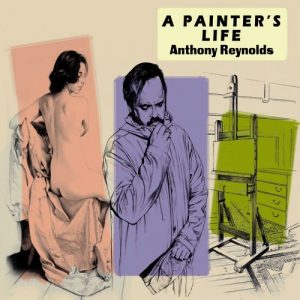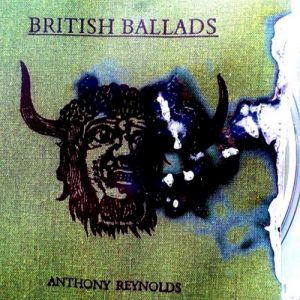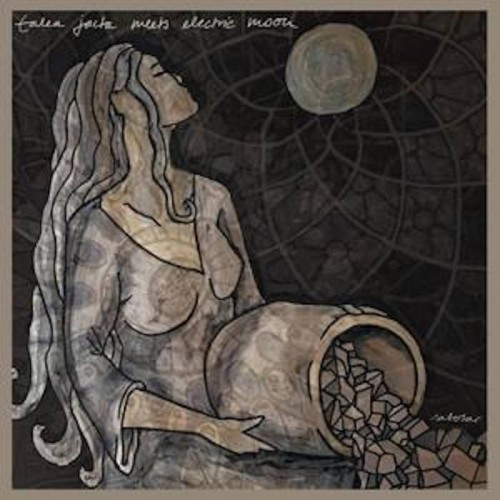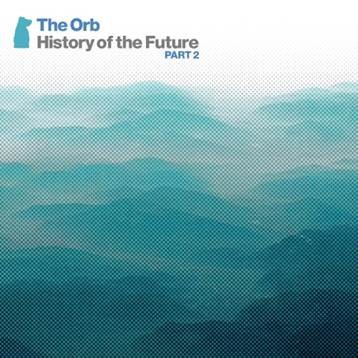Anthony Reynolds has had a varied career. In some circles he is known for his two excellent biographies on the band Japan, A Foreign Place, that covers the band from 1974 until 1983, and Cries And Whispers that covers the solo careers and brief reunion of the members from 1983 until 1991.
Here then are two albums that Anthony has recorded over the years; his latest is A Painter’s Life and an earlier 2007 album, British Ballads. Reynolds plays a variety of different instruments on the albums and writes all of the songs. So lets take a trip to where the wild flowers grow and moss creeps over stones.
A Painter’s Life
Rocket Girl
 “I Was Born” starts A Painter’s Life with the sound of an early Scott Walker song, with personal lyrics about his own life and a lush orchestral backing and a steady late sixties-sounding drum beat.
“I Was Born” starts A Painter’s Life with the sound of an early Scott Walker song, with personal lyrics about his own life and a lush orchestral backing and a steady late sixties-sounding drum beat.
“Have You Heard From Her Lately” is a mournful piece that reminds me in style of Shelleyan Orphan. The song is about love lost and drives with a strong orchestral backing and the odd bit of dramatic percussion. “My Hometown” keeps the driving sixties rhythm, the lyrics appear to cover bullying and standing out in the place you grew up in (two things I also personally know about). It’s a song for all outsiders who suddenly feel growing up that maybe they should be somewhere else.
“Yves Saint Laurent” opens side two with, dare I say it, a slight David Sylvian sound to its music as a beat tumbles over slight piano lines and a Mick Karn– like fretless moves snake-like over the top. It’s the song with the most arty-sounding and maybe slightly atonal chord sequence, apart from its chorus that climbs out of the jagged guitar chords. “Basquiat In Exile” has dramatic drums and a string arrangement that ascends and descends in equal measure. The vocals are either distorted, howling in the background, or are in spoken-word form over the top, creating an unsettling atmosphere. Violins and cellos herald “A Small Spit Of Land”, that seems lush and grandiose and appears to concern itself with this bejewelled isle and the sense of growing up here. Its lyrics mention minerals, but also questions the serendipity of the place you were born and what that makes you. It’s a profound statement as we are all shaped by the place we grow up and some of us seem more fortunate than others. It certainly made me think about growing up in London, a place I’ve always felt I’ve never belonged; good songs should always make you question things about your own reality.“I’m Dying (To Be Born Again)” has strummed acoustic guitars and a reflective mood that questions how maybe things could be different if we started all over again and also what different routes we take from people who once shared our lives for a time. Would we change things? Would they be better? Most of us never get the chance to get a second go at these things; maybe they are perfect for that point only.
The album finishes with the rather melancholic-sounding “In A Café At The End Of The World”. Piano chords and the sound of a smoky bar in Paris late at night in autumn is the vibe I get from this. Reynolds recycles some of the lyrical themes from throughout the album and creates the kind of song that wouldn’t have been out of place on an Associates album. A Painters Life is in essence an autobiographical record and so pushes the directness of its very personal vision.British Ballads
Hungry Hill
 With it’s cover taken from the now-infamous book on British folklore so beloved of the folk horror revival movement and featuring Paul Cook on drums, British Ballads is Anthony’s album from 2007.
With it’s cover taken from the now-infamous book on British folklore so beloved of the folk horror revival movement and featuring Paul Cook on drums, British Ballads is Anthony’s album from 2007.
“Bread And Wine’ starts off with some Richard Barbieri-style atmospherics before piano and electric guitar bring things more in line with Tex Perkins‘ Sad But True album. Its middle eight has an almost late Beatles feel to it and did make me think on what instruments were composed on and how the creative process happens with the compositions, and how much improvisation there is in the studio with the musicians on the record. “Country Girl” has a kind of jazzy guitar part that Steve Howe would be proud of that happens over brushed percussion. The vocal takes the lead here as the instruments’ melody is slight in some respects.
A beautiful piano fugue introduces “The Disappointed”; this is followed by foggy strings on a cold morning. The lyrics talk of longing and opportunities missed and view of life seen through a misted window with condensation dripping down your reflection. “A Quiet Life” (no, not that “Quiet Life”) is more of a folk ballad as it is just acoustic guitar and vocals, and has a sense of being separated from modern life in its lyrics and yearning for something different from everyday existence. The lyrics did remind me a little of The Divine Comedy in style, with a similar pointed humour to them.“Where The Dead Live” has a piano that breaks into the Kate Bush realm with its chordal structure. The theme of drinking and drunkenness seem to reoccur throughout Reynolds’ lyrics and here we are treated to them in respect of a bar where “you can drink but won’t get drunk”. For me, the lyrics almost conjure up a place that dances between the flames of time, a kind of Weimar bar. “The Hill” is an atmospheric piece of hovering synth chords and noises, while the voice of author Colin Wilson narrates over the top with words by Rupert Brooke.
“Just So You Know” mentions another of Reynolds’ favourite subjects, ships. With this song I did feel a little touch of Brian Eno’s Before And After Science in the way the instruments almost hum in the background while piano notes are dropped in occasionally. The surprising thing about this track is that it has a haunting vocal from (the now retired?) Vashti Bunyan alongside Reynolds’ and it is so distinct that it takes you back to that early ’70s British acid folk thing, even though musically the track doesn’t touch on it much; it’s still nice to hear the two vocal styles working together. The album closes with “Song Of Leaving”, a more jaunty pop rock song that sounds almost joyous in its tale of someone leaving after what appears to be the end of a brief relationship; and like “Goodbye Stranger”, there appears to be no regrets as the narrator walks away into the sunlight. It’s an oddly uplifting song to finish the album, especially if you take into account its subject matter, but it fits perfectly with the way Reynolds plays with words and melodies.Anthony Reynolds’ work is worth exploring, especially if you are interested in a certain melancholic aspect of life, almost world-weary at times. The songs cry out through some beautiful arrangements to the heavens, and yes there are some damn fine belting tunes as well. So dip your toes into the waters and slowly immerse yourself in Reynolds’ world for a couple of hours.
-Gary Parsons-


